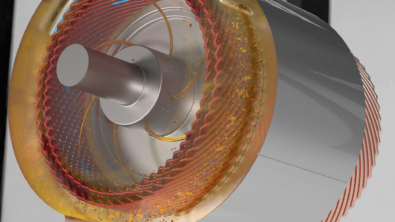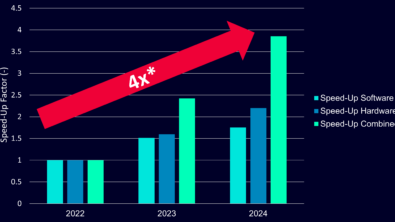What’s new in Simcenter FLOEFD 2406? | CAD-embedded CFD simulation
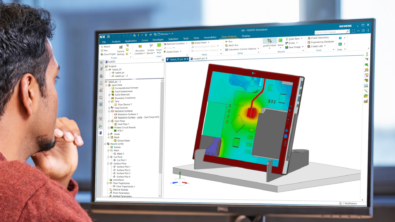
The new Simcenter FLOEFD 2406 software release enhances integration across Simcenter portfolio with import from Simcenter Flotherm XT software, introduces integration with Siemens NX PCB Exchange tool for greater workflow opportunities, adds Python scripting support for automation, speeds up handling of large CAD assemblies and much more. Read on to learn how new electronics cooling simulation oriented features and overall software enhancements that help you stay integrated, model the complexity, explore the possibilities and go faster in your simulation processes.


Stay Integrated

Import Simcenter Flotherm XT models into Simcenter FLOEFD
To enable easier model interchange and enhance communication between users and between organizations, you can now import a Simcenter Flotherm XT model into Simcenter FLOEFD and utilize the model set up from the original model.
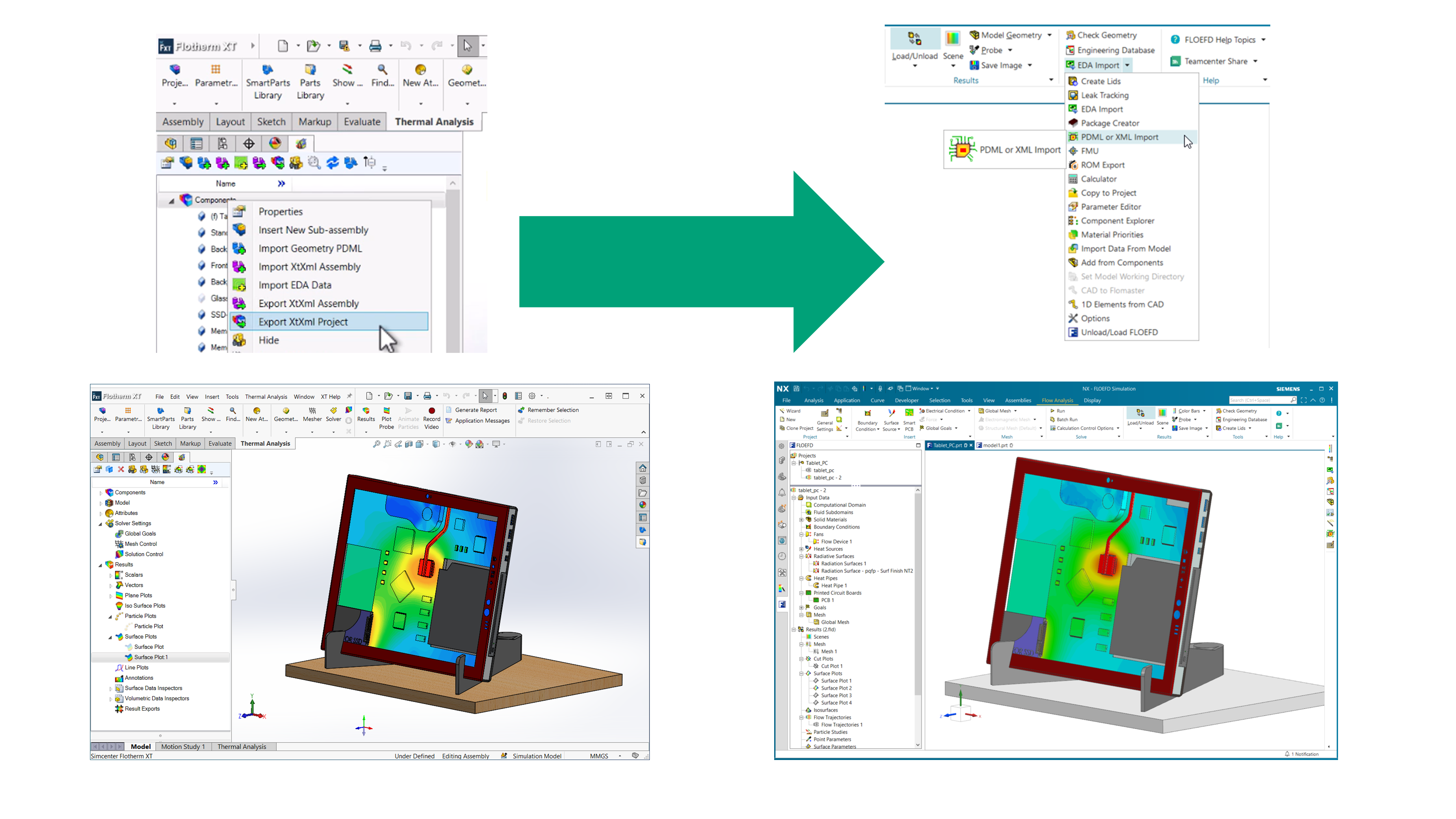
This also helps users who are selecting to transition to using Simcenter FLOEFD to leverage a CAD-embedded analysis environment and take advantage of multi-physics oriented workflows including thermo-mechanical stress analysis capabilities within Simcenter FLOEFD. Below is a video showing the steps for importing exporting a thermal model from Simcenter Flotherm XT and then importing into the Simcenter FLOEFD.

For a full list of supported model import features, please see release highlights and release notes on support center for your Simcenter FLOEFD 2406 variant

Leverage PCB Exchange with Simcenter FLOEFD
PCB Exchange is an ECAD-MCAD bi-directional collaboration tool from Siemens Digital Industries Software allowing users to create and modify NX models leveraging EDA data. Capabilities have been added to PCB Exchange recently to create a simcenter FLOEFD project.
The main capabilities are as follows:
– Create a Simcenter FLOEFD project directly from PCB Exchange
– EDA data is transferred as a Smart PCB, that users are familiar with
– PCB Exchange supports creation of wirebonds
PCB Exchange is compatible with Simcenter FLOEFD for NX and Simcenter FLOEFD SC (Simcenter FLOEFD for Simcenter 3D environment). Below is an extended demonstration video of a power electronics module thermal model analysis with the steps for importing PCB information shown using PCB exchange and the IDX file format and in particular components with wirebonds (via CCE file). Wire bonds are important to model in these types of applications.


Model the complexity

Model thermal vias quickly and easily in Simcenter FLOEFD 2406
New PCB thermal via modeling capabilities have been added to the Simcenter FLOEFD EDA Bridge so you can more easily explore thermal management options:
- Quickly add thermal vias by defining under a component
- Thermal vias are created as a cuboid representation of an array with orthotropic material properties when transferred to Simcenter FLOEFD
How to add a thermal via representation under a component in EDA Bridge
A thermal via region is created quickly by first selecting the relevant component and then adding the Thermal Via Region
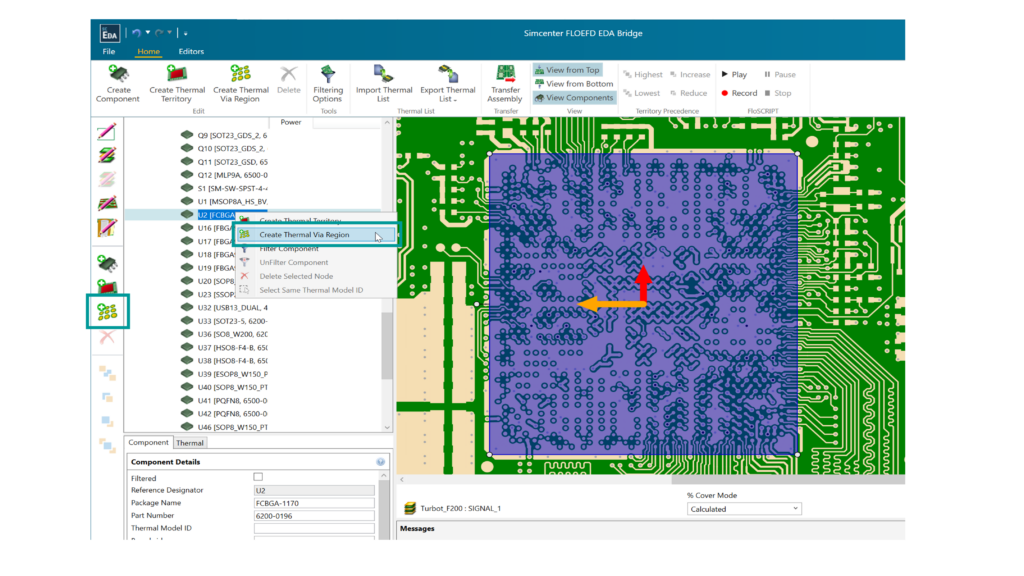
How to edit PCB thermal via properties
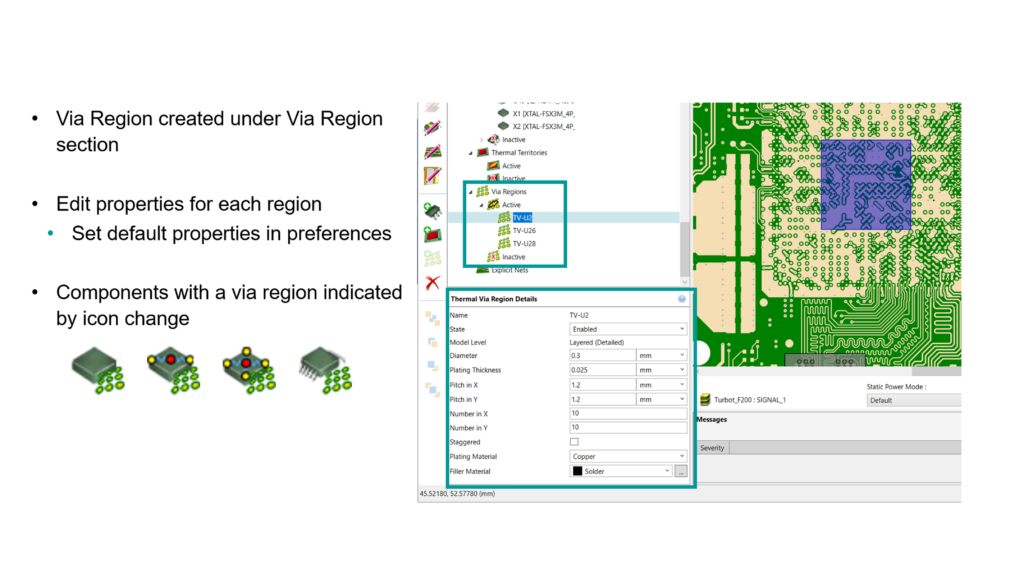
How do thermal vias appear in Simcenter FLOEFD 2406
Within Simcenter FLOEFD, a Thermal Via assembly is created within the parent component assembly.
Geometry is created for each dielectric layer of the PCB. No geometry is created for the conducting layers since the additional conducting material from the via region is negligible. A material with an effective biaxial conductivity is automatically calculated from the thermal via properties and attached to each object in the thermal via assembly.
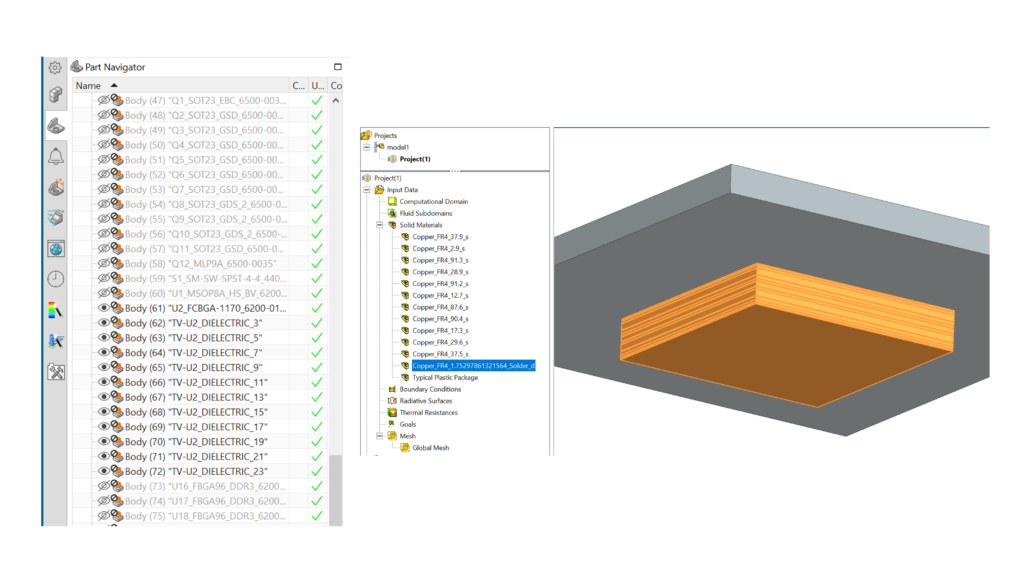
Use a local system for point parameters
You can now convert local coordinate systems to define point parameter locations. This means you can convert local system coordinates to a global one. For example if you select a local coordinate system, paste coordinates in from a table or import from a file, then you will be prompted if you want to convert them to global coordinates.


Explore the possibilities

Utilize simulation automation: PYTHON scripting support in EFDAPI

Python is a widely used, popular scripting language for automation across engineering tools and functions. Simcenter FLOEFD 2406 introduces Python support for automation within the Simcenter FLOEFD API (the new EFDAPI was introduced in Simcenter FLOEFD 2312). This opens up opportunities for pre-processing, simulation solve and post processing automation tasks. You can also pursue automating Simcenter FLOEFD operations within in multi-tool workflows for you analysis process. There are documentation and scripting examples available on Support Center to assist users.
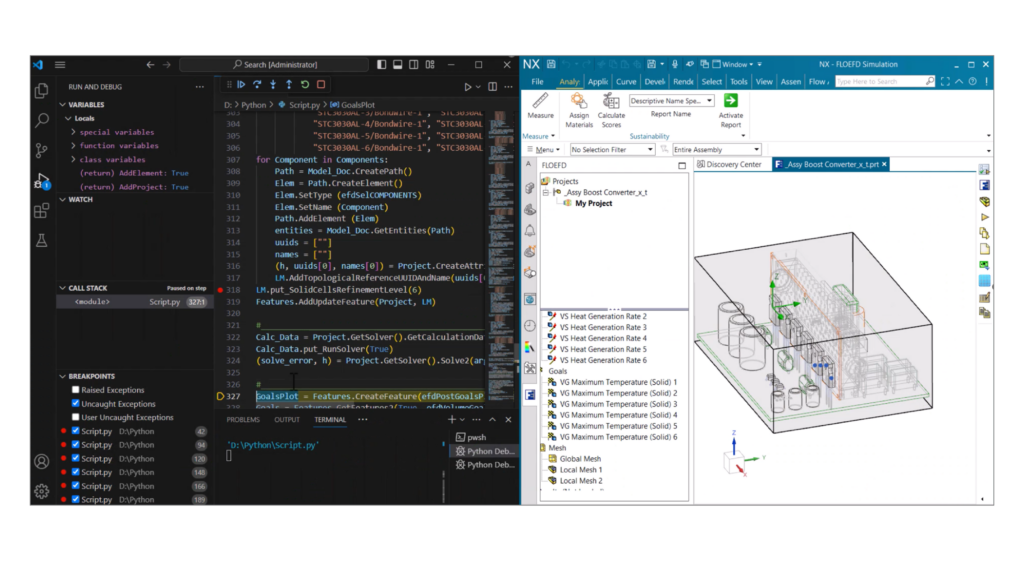
Below is a short simple demonstration video illustrating a Simcenter FLOEFD thermal analysis with all conditions, features and heat sources being created via Python script and how the simulation results are being post-processed and exported as an excel spreadsheet and graphic files. This is illustrated for an electronics cooling simulation model of a boost converter.

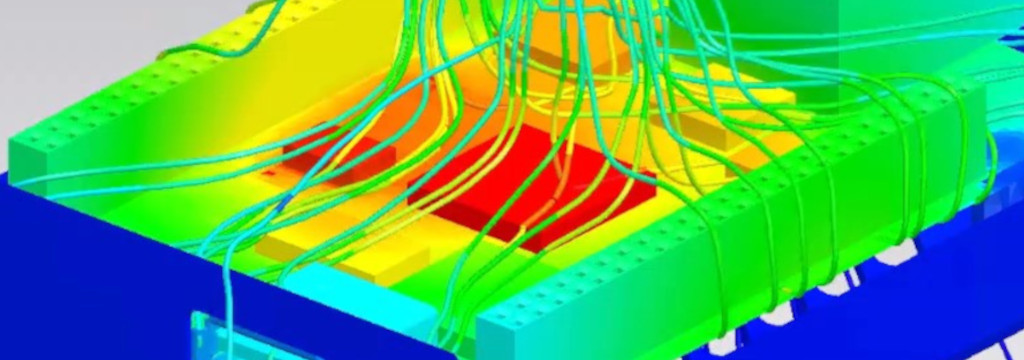
Go faster

Faster handling of large CAD assemblies
It is now much faster to open, create and clone projects that contain thousands of component to 100K+ components. Of course any speed up is model dependent, 1.5 – 5 x faster for a model with 45K component to 100 to 150 x for a advanced package with 125K components (i.e lots of solder balls)
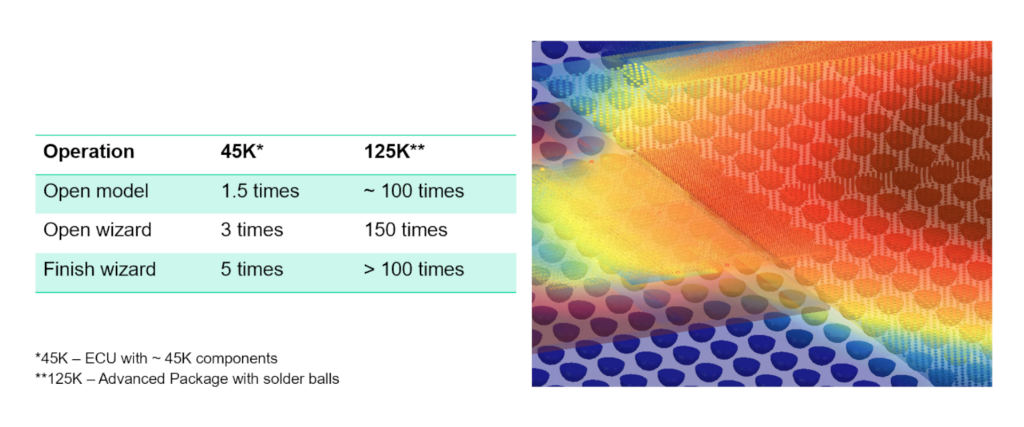
Smart PCB thermal analysis memory consumption improvement
The Smart PCB is one of several options for PCB thermal modeling and it is constantly being enhanced for speed, and memory use optimization. Smart PCB is a sophisticated approach to efficiently capture the detailed material distribution of a PCB without the added computational resource and time penalties typically required to model the PCB explicitly. It does this by using a network assembly approach , whereby a voxel-style grid based on the images of each PCB layer in imported EDA data is generated.
In Simcenter FLOEFD 2406, the solver has been optimized to further reduce memory required for thermal analysis. In comparison to the last 2306 release, memory use reduction is illustrated to be in the 18-20 % range. You can see this this illustrated for fine vs average approach for 3 types of board model in the figure below.
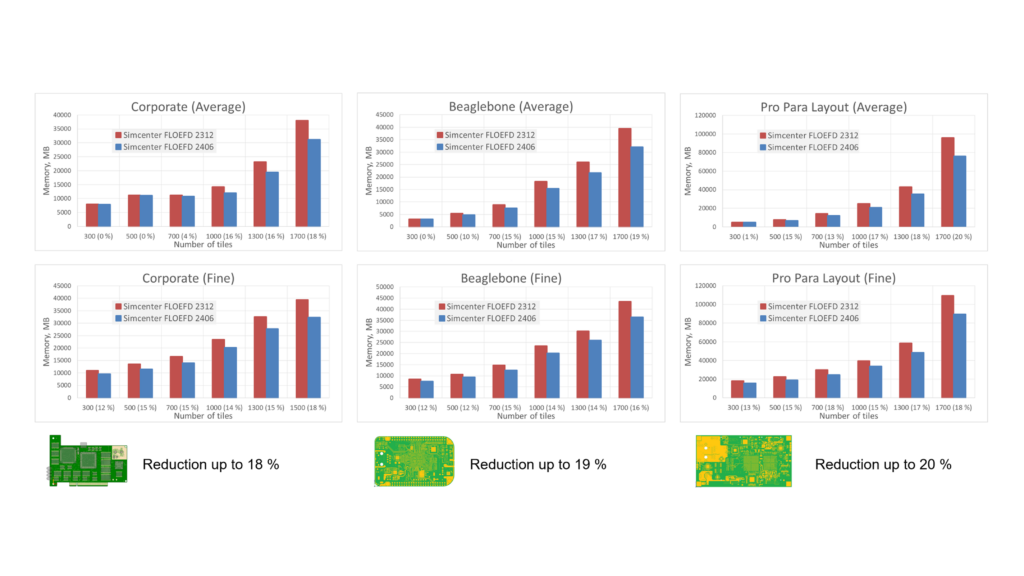

Where to download – for clients

Simcenter FLOEFD for NX
Simcenter FLOEFD for Solid Edge
Simcenter FLOEFD for Simcenter 3D (Simcenter FLOEFD for SC)
Simenter FLOEFD for CATIA V5
Simcenter FLOEFD for Creo
